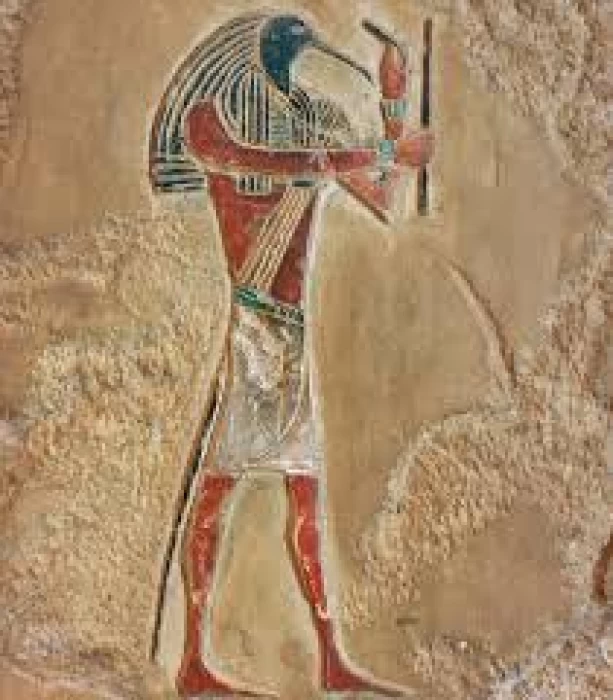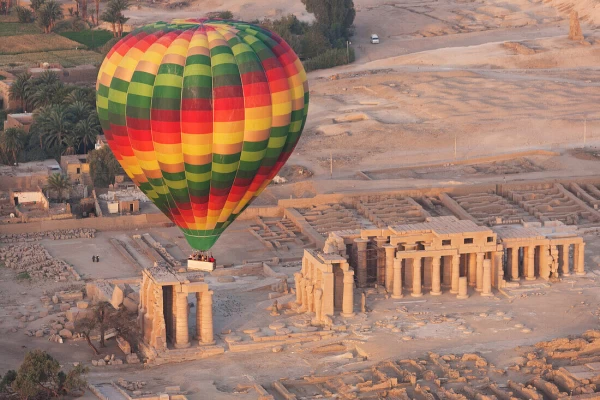
Dios Thoth | Mitología del Antiguo Egipto
Dios Thoth estaba entre los dioses más importantes del antiguo Egipto y, en particular, era la autoridad de la lucha entre Horus y Seth por la sucesión de Osiris. Dios Thoth, más conocido en la antigüedad como Theut, fue objeto de un culto particular en la localidad de Khomonou (en griego Hermópolis) en el Medio Egipto.
El nombre de Thoth significa 'El de Djehut', que era una provincia del Bajo Egipto. Él era el Dios de la luna, dibujo, escritura, geometría, sabiduría, medicina, música, astronomía y magia. Thoth fue el patrón de los escribas como creador de la escritura. Según una teoría, había hecho la creación del mundo a través de la eficacia de las palabras.
Por sus propias manos, el dios Thoth anotó en 42 libros (el número de nomos egipcios) toda la sabiduría del mundo. También estaba muy apegado a la diosa Maat como representante de la verdad y la justicia. Thoth también era un dios de las leyes. Como abogado, supervisor legal y defensor de los muertos, participó en el pesaje del alma durante el juicio, juicio al que fue sometido el fallecido para saber si era digno o no de entrar al cielo del más allá, un Escena tradicional y dibujo en muchos rollos de papiros en los bazares autorizados que solemos visitar durante nuestro recorrido por las pirámides de Giza y el recorrido por el Museo Egipcio.
Thoth fue considerado un gran inventor, habiendo descubierto los números, las matemáticas, la geometría, la astronomía, varios juegos (damas y tiradas de dados) y especialmente la escritura. Los sacerdotes de Thoth dijeron de él que creó todo a partir del sonido y que a través de los jeroglíficos, también tenía el control de la magia y los magos. De hecho, se dice que Thoth escribió libros que contenían el fabuloso conocimiento de la magia y el encantamiento, libros luego sellados en una cripta. Otra característica de Thoth era la de ser una deidad lunar. Dado que la luna era uno de los fundamentos del calendario egipcio, él era el "recolector de años" y el "señor del tiempo". Egipto sigue siendo un destino turístico de primer orden, ya que su historia ha dado forma al mundo actual.
Thoth, known in the dialect of ancient Egyptians as Djehuty, was the god of wisdom, writing, and knowledge. He had an incredibly important part in Egyptian mythology, as he was the god who acted as a mediator between the gods and a divine scribe who included all events in writing.
He was the minister standing next to Ra on the deck of his ship to recite to him the affairs of the state. He is the judge who decides disputes between the gods in heaven, and predicts to the gods and humans what will happen to them. In addition to building cities and setting their borders, he was the one who gave people words, writing, and correct arithmetic.
Thoth was usually portrayed as being one of the following:
A human male, having the head of an ibis, and holding a writing palette and a reed pen.
A baboon, an animal, connected with the moon and intelligence: the Egyptians.
He always takes pictures holding a pen and a tablet on which he writes.
Scribe of the Gods: He recorded the deeds of both gods and mortals and controlled the weighing of the heart in the afterlife.
Patron of Writing & Knowledge: He was said to have invented hieroglyphs and instructed mankind in writing.
God of the Moon: Connected with lunar cycles, it was supposed that Thoth would have authority regarding time and the upkeep of cosmic balance.
Arbiter Among the Gods: It played a role in settling disputes.
Thoth was worshipped as the final source of wisdom in Hermopolis (Khemenu), where he had his main cult center. His influence reached boundaries beyond Egypt, for to Greeks, he was Hermes Trismegistus, the legendary figure of Hermetic traditions.
Thoth remains perhaps the most revered deity in Egyptian mythology: intellect, learning, and divine ordination are those that he symbolizes.
God Thoth was among the most important gods of ancient Egypt and in particular, was the authority in the struggle between Horus and Seth for the successorship of Osiris. God Thoth, better known in ancient times as Theut, was the subject of a particular cult in the locality of Khomonou (in Greek Hermopolis ) in middle Egypt.
Thoth's name means 'He of Djehut', which was a province in Lower Egypt. He was the God of the moon, drawing, writing, geometry, wisdom, medicine, music, astronomy, and magic. Thoth was the patron of scribes as the creator of writing. According to a theory, he had made the creation of the world through word effectiveness.
















